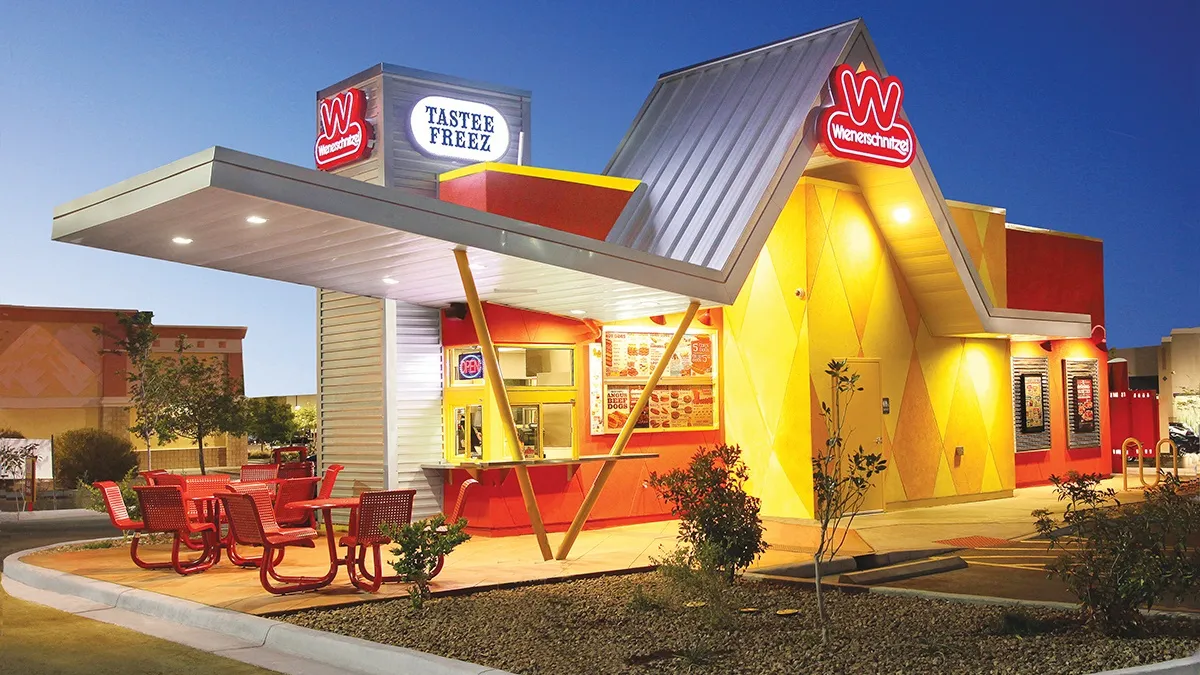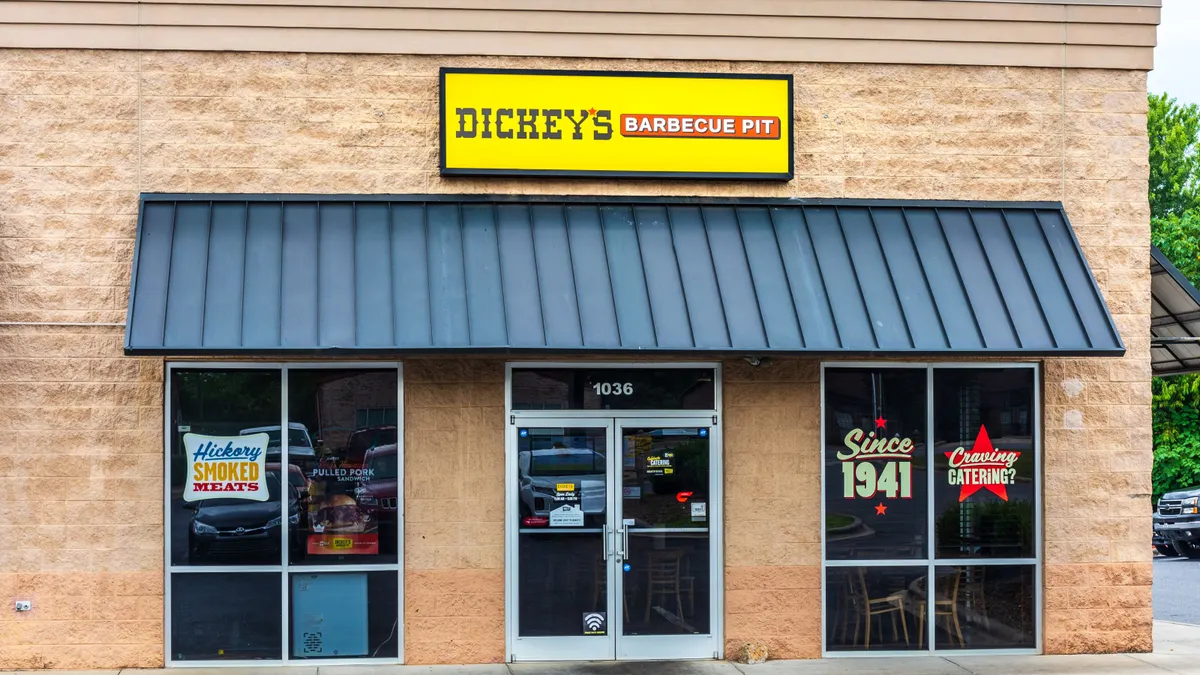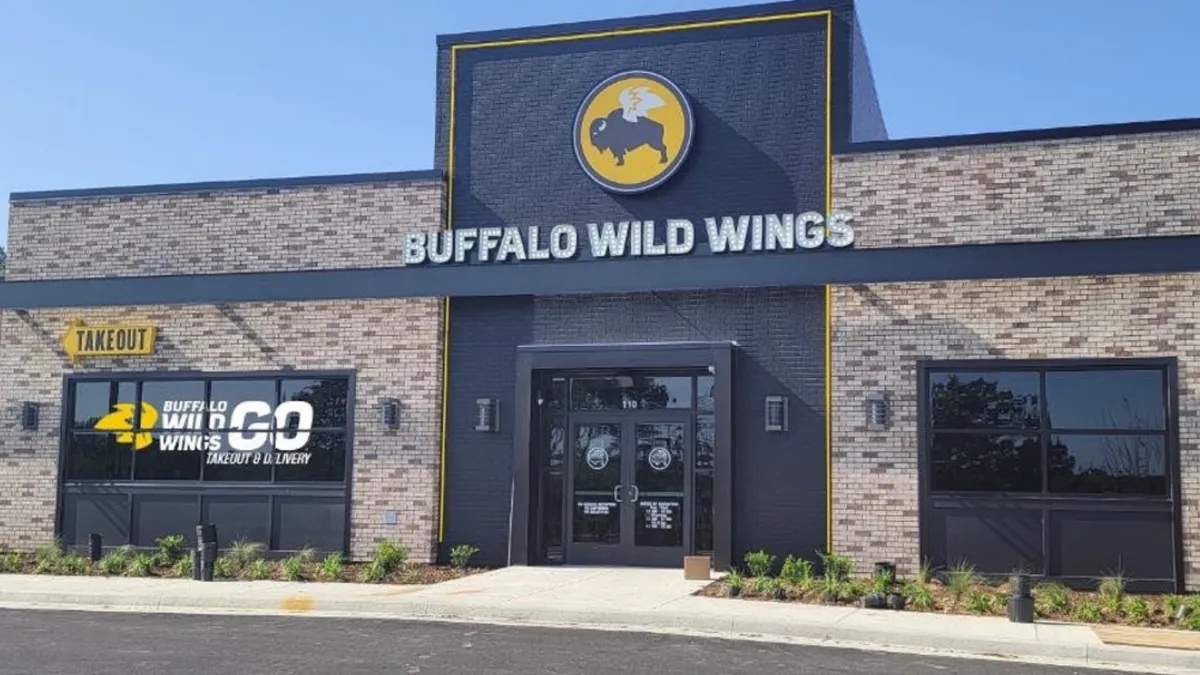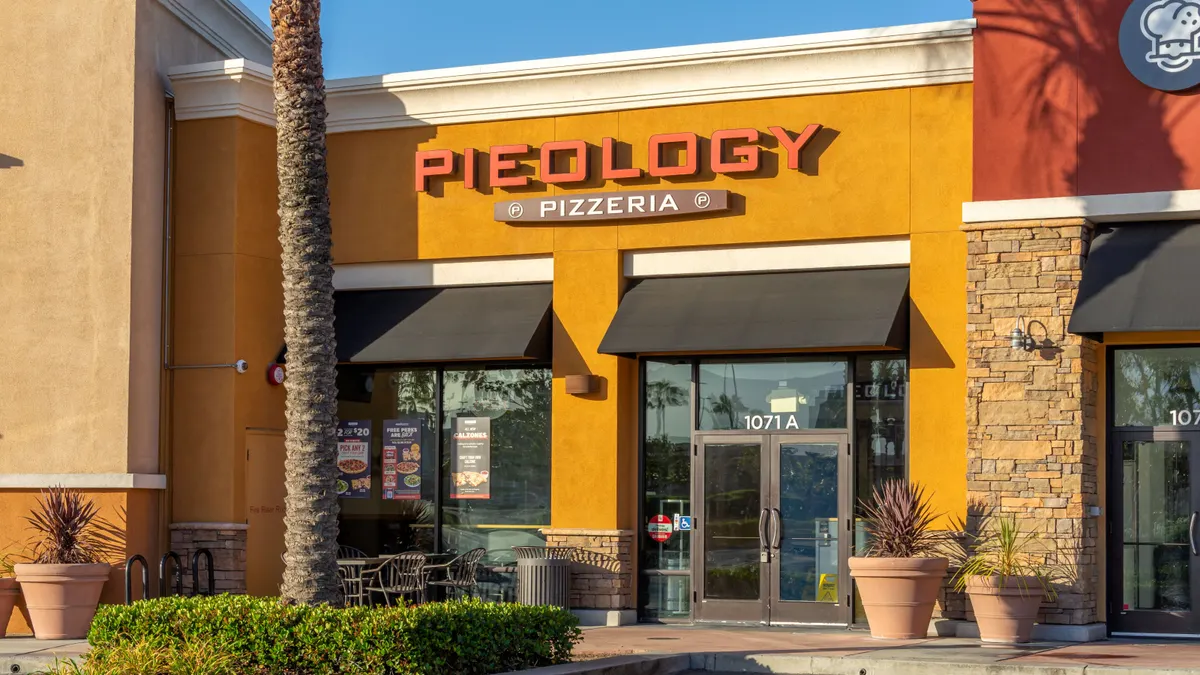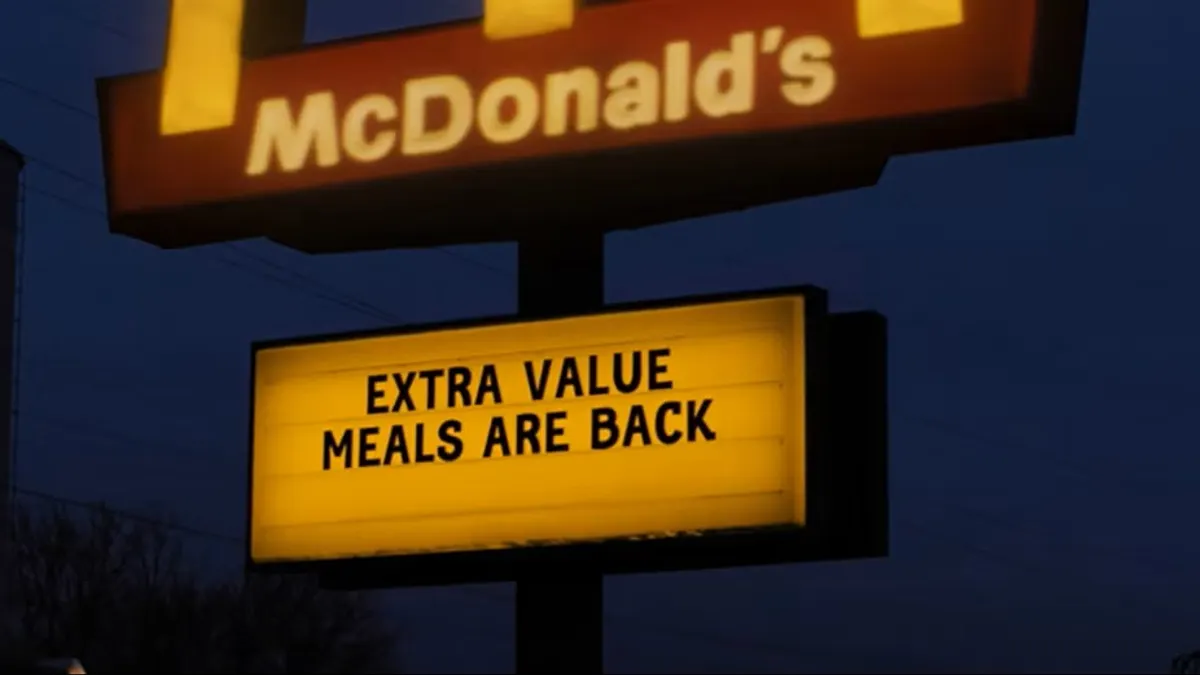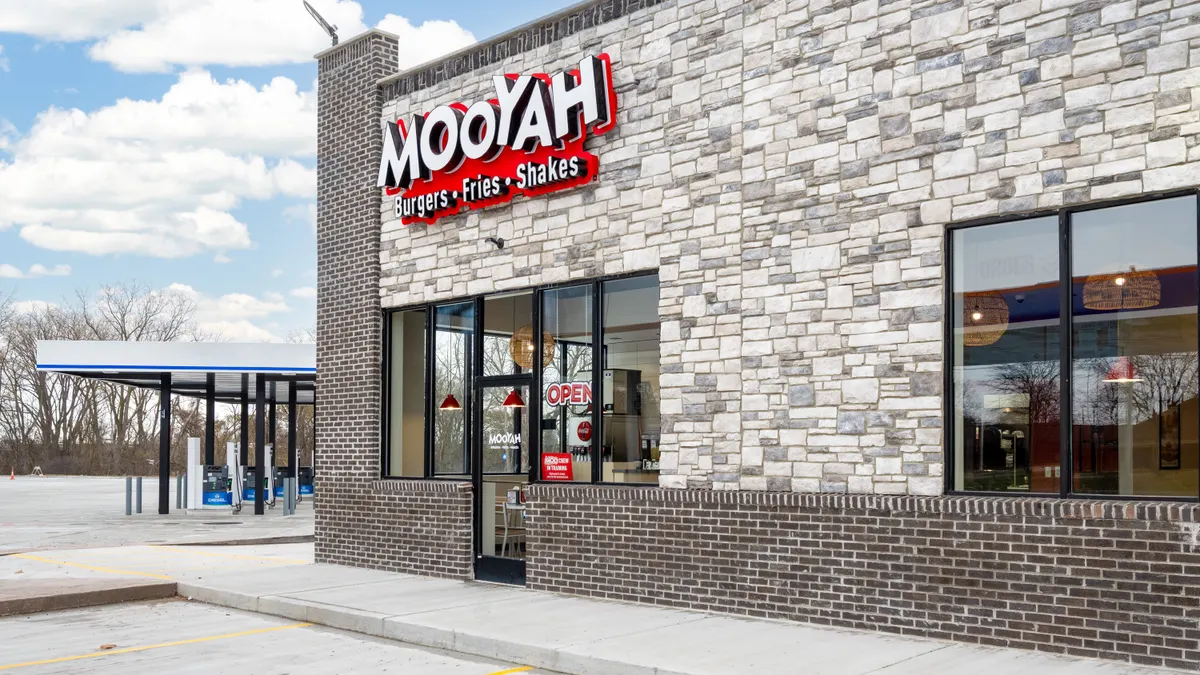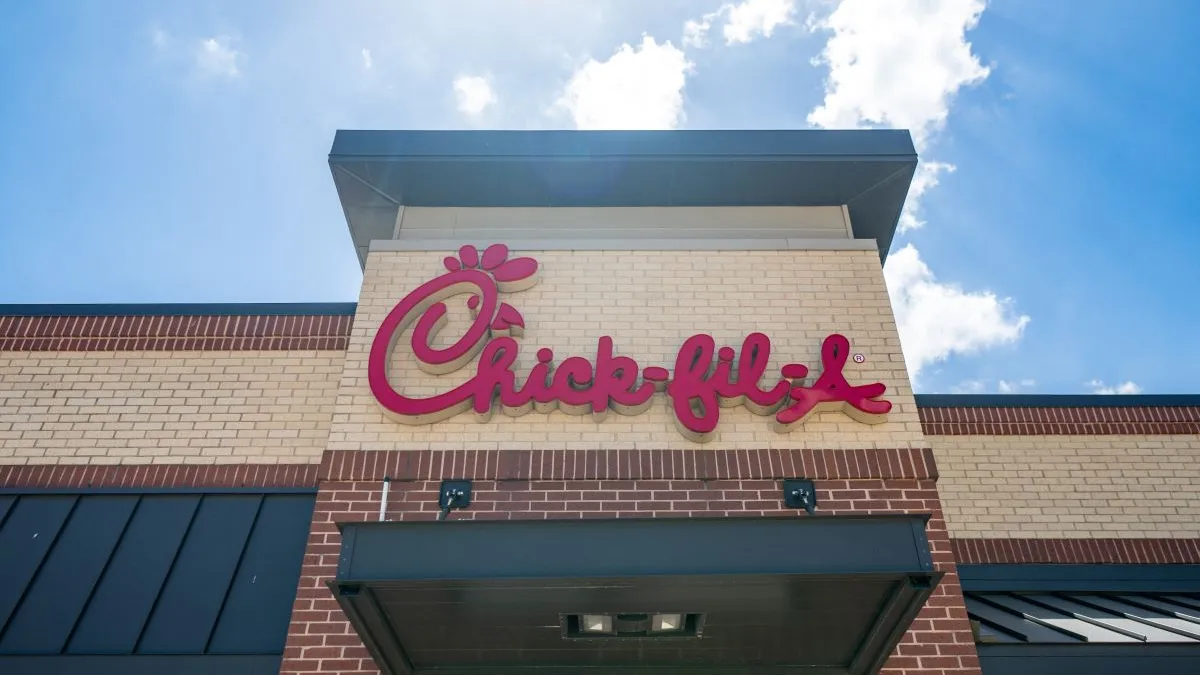Editor’s note: This article is part of an ongoing franchise series, which highlights brands that are new to or aggressively expanding via franchising. Is your restaurant starting to franchise? Email us at [email protected].
Wienerschnitzel has offered the same 5% franchising royalty rate for more than half a century, said Ted Milburn, director of U.S. franchise development at Wienerschnitzel’s parent company, Galardi Group. The hot dog brand which was founded by John Galardi in 1961, began franchising in 1965.
The brand currently has about 320 units in the U.S., and is opening its first international store in Ecuador later this year. Over the past several years, however, the chain has posted flat growth, Milburn said. Now, the brand is looking to capitalize on its simple menu and ease of operations to speed its expansion through partner operators to 500 global units.
Since the beginning, Milburn said, Wienerschnitzel’s menu has been key to its expansion.
“John [Galardi] was really looking at what was happening in the world. There were a lot of burger chains really starting to come to prominence in the late ‘50s, early ‘60s. Hot dogs [were] a clear carve-out niche,” Milburn said.
Today, the restaurant chain is attracting American franchisees with two new incentive structures. The larger discount, according to Milburn, is designed to encourage operators to enter new markets. The incentive grants operators who agree to develop three stores a discounted royalty rate for four years, with the rate set at 1% of sales the first year and rising to 5% in the fifth year. Franchisees also receive $20,000 in direct local marketing spend from Galardi and a $5,000 training fee at the first restaurant.
The second incentive, designed for single-unit agreements in extant markets, offers discounted royalties for two years alongside the $20,000 local marketing spend and the training fee.
“We're trying to help people get open as cost effectively as possible so that they can start making money,” Milburn said. “It rivals most anybody out there.”
The top 50% of the chain’s system, according Wienerschnitzel’s website, have AUV’s around $1.4 million. This drops off substantially, however, with the bottom quartile making only about $771,349 in sales in 2021, according to Wienerschnitzel’s most recent franchise disclosure document.
But, Milburn said, Wienerschnitzel’s menu and processes help constrain costs, while also differentiating the brand from QSRs focused on burgers, chicken, tacos and pizza.
“Our menu is very straightforward. The process is very simplified. The number of ingredients is very minimal. And it really makes for a cleaner operation for an owner,” Milburn said. “Hot dogs, chili cheese fries, corn dogs, that dominates 50-60% of all of our sales, just those three items.”
To help bring operators up to speed, Wienerschnitzel offers an eight-week training program, with one-week of in-class instruction and seven weeks in-store at a certified training location.
Development plans: A good year, Milburn said, might see the brand open 18 or so units, marking roughly 5% growth. The chain plans to sell a lot of development licenses, but those will take time to execute. Wienerschnitzelis planning to expand gradually throughout the Midwest and South, especially in parts of those regions west of the Mississippi river, building brand awareness market-by-market, starting in states adjacent to those in which the brand already has a presence.
“It makes it a lot more viable for not just us, but also our distribution network,” Milburn said.
“We get a lot of inquiries from the East Coast, lots of people in the Carolinas and Georgia and Florida. And it doesn't make sense for that far of a leap to go try and plant a single flag and see if it works out there. That’s not who we are.”
Ideal franchisees: Like many QSR brands, Milburn said, Wienerschnitzel is interested in experienced, multi-unit operators who are looking to diversify. But the brand is also interested in franchisees who don’t come from the restaurant world, he said.
“The next tier, that I place equal value on, is really an entrepreneur, somebody who has been successful running their own business or businesses. They've not done the franchising world, but they have experience in managing people and resources and developing out their buildings or facilities,” Milburn said.



